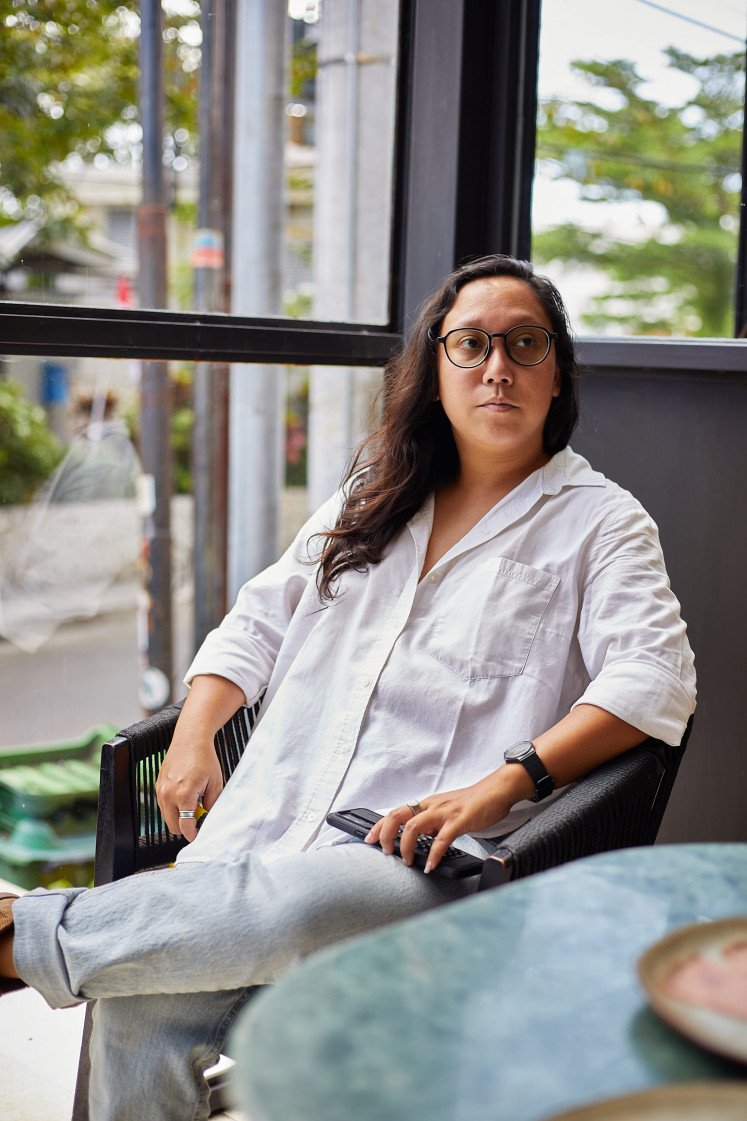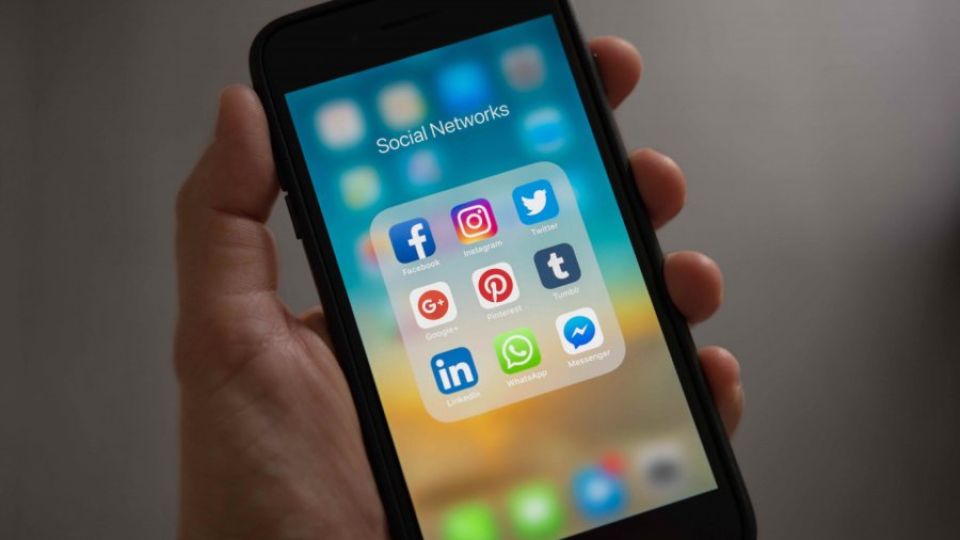January 11, 2023
JAKARTA – While cyberspace might be infinite, using social media requires common sense, caution and some sense of self-preservation to avoid any negative experiences that might affect your offline life, including your job and mental health.
Social networking platforms have become the go-to medium to make new friends or share ideas. However, they also come with many drawbacks. Social media can disrupt users’ mental health, invade their personal space and even risk their careers.
In some cases, an individual’s social media posts could lead them to being fired or getting a warning from the human resources department (HRD), especially if their posts are related to sensitive topics such as misogyny and workplace conflict, or contain insensitive jokes or opinions and views that don’t align with their company’s values.
The Jakarta Post talked to a few individuals who have been cut deeply because of their social media posts.
Corporate image
In early March, Joni (not their real name), a 32-year-old promotion analyst at a multinational in Jakarta, was called out by his company’s HRD after uploading an Instagram Story featuring a video of President Joko “Jokowi” Widodo, set to music from Yogyakarta-based band Hello’s hit song, “Ular Berbisa” (Rattlesnake).
The video segment showing an image of the President’s face is subtitled with the lyrics: “Aku tertipu aku terjebak / Aku terperangkap muslihatmu [I was deceived I was trapped / I was ensnared by your tricks]”.
Joni, who believes in freedom of speech, didn’t think his post would cause a scene at HRD. Yet, 20 hours after he had uploaded the video, he received a message to take it down.
“An Instagram Story automatically disappears after 24 hours. I deleted the video 23 hours after posting it,” he told the Post by phone.
“I understand that the song sounded like I was dissing the President, and HRD was afraid that if the post went viral, it could damage the [company’s] reputation,” said Joni, who continues to express his political views through text posts after the incident.
Tia Pesarona, a digital marketer and erotic dancer-choreographer based in Bali, had a similar experience.
In January, Tia’s boss called her out on a video of one of her performances that she had posted on Instagram. Her boss noted that Tia’s social media account “didn’t represent the company” and she needed to “tone it down”, as her dancing was deemed too explicit.

Breaking free: Tia Pesarona started her own digital marketing business for the hospitality industry after her previous workplace called her out on a post of her performing an erotic dance, which for her is a form of self-expression. (Courtesy of Tia Pesarona) (Courtesy of Tia Pesarona/.)
While erotic dance is still taboo in Indonesia, where it is widely viewed as unorthodox and a type of sexual activity, to Tia it is a form self-expression.
“My response was that it’s my personal Instagram account and I have zero legal obligation, as I never signed any contract that enforces any rules regarding posts on my personal social media accounts,” Tia said.
For her, social media is a space where individuals can share their personal or professional interests without limitations. However, the 29-year-old asserted that the implications of posting freely depended on where the individuals work and how big their company was.
“If I was working at a big multinational corporation that is publicly [listed] and I made a direct statement on my social media accounts that [hinted at] the stock price, I wouldn’t be surprised if I got called into HRD or fired.
“The bigger the company, the bigger the ripples,” Tia cautioned.
Traumatizing
Others have been left traumatized from being called out for their social media posts. One such user is Lily Pramesti, a mother of one who was kicked out of a university organization because of a social media post.
Three years ago, while she was still at a state university in East Java, Lily joined a nationalist student group. One day, she uploaded a post about the stresses of student life and having a hectic schedule. Lily was surprised when the group’s leader brought up her post during a meeting.
The leader told the group’s members that if anyone had a problem, it would be better to raise the issue directly instead of sharing it on social media. Posting the issue on social media without addressing the conflict in real life only showed that the complainer was a coward, they said.
“That’s why I never put my social media account on my curriculum vitae or share it with my colleagues,” Lily told the Post. After the incident, she decided to avoid posting anything on social media.
Tia, on the other hand, responded very differently. She decided she had better move on to another workplace if she wasn’t allowed to express her thoughts and feelings digitaly.
“Passion is my number one drive. If my workplace limits my self-expression, I would rather work somewhere else or be self-employed,” Tia said.
Her conviction drove her and several close friends to start a business in late October that offered digital marketing and design services for the hospitality industry.
Setting boundaries
Using social media is inevitable in the digital era. As of January 2021, around 170 million people actively use social media in Indonesia alone, making it the country with the third largest number of active social media users in the Asia-Pacific, after China and India.
With such a figure, how do we draw the line between work and personal life on social media?
Candra, 32, is an HR executive and one of the administrators of the HRD Bacot (@hrdbacot) account on Instagram, which is dedicated to employees across Indonesia.
He told the Post that in many cases, companies don’t want to be associated with their employees’ social media blunders. This was one of the main reasons why organizations looked up employees’ social media accounts.

Online boundaries: Candra, a human resources executive and an administrator of the HRD Bacot Instagram account, recommends creating two social media accounts so users can keep their professional and personal lives separate. (Courtesy of Candra) (Courtesy of Candra/.)
Candra also offered a couple of tips to avoid online gaffes. One was to set up two separate accounts, one for professional use and the other for personal use. He also suggested avoiding following any colleagues’ accounts to set clear boundaries.
“At the end of the day, you can’t [prevent] anyone from voicing their opinions,” Candra said, noting that it was common for coworkers to pour out their hearts by nagging about their jobs or careers on social media.
“There are individuals who have strong opinions or [who] may be bolder than others, and not everyone can understand that.”
Candra was careful to highlight that the impacts from social media posts on a user’s career would be different, depending on a company’s policies.
Some companies were concerned about their employees’ social media activities, while others might simply hover and give suggestions to their employees. At some companies, employees were allowed to post whatever they wanted, as long as they didn’t violate the Criminal Code (KUHP) or company regulations.
Still, he advised caution during the current political climate.
“We all need to be careful because the election is coming up [in 2024], and there will be hoaxes spreading across social media. So it’s better that we [restrain] ourselves. We never know how our posts could impact our jobs,” he said.


